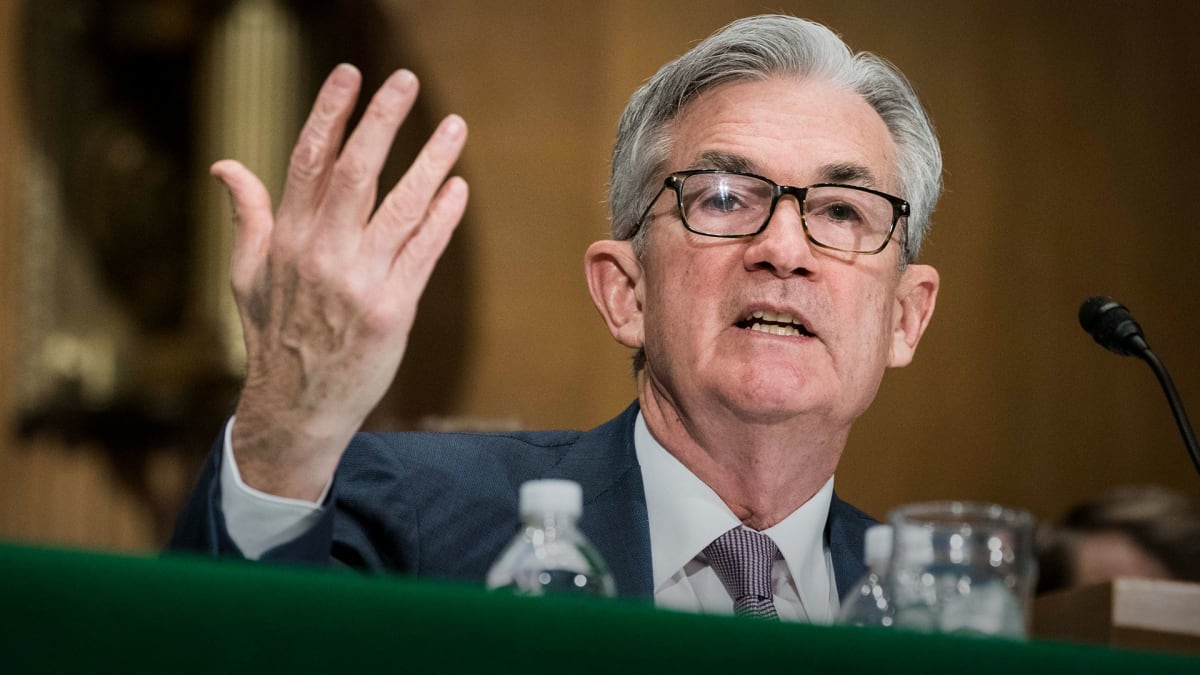
Federal Reserve Chairman Jerome Powell said Tuesday that he expects to see 'significant' declines in inflation this year, adding that he was pleased to see disinflation taking root without damaging the domestic job market.
Markets reacted quickly, rising sharply following Powell's remarks, but gave back those gains after the Fed Chair indicated that more rate hikes may be needed if economic data, particularly in the jobs market, were to persist during his question-and-answer session at the Economic Club of Washington, D.C.
"The reality is if we continue to get strong labor market reports or higher inflation reports, it might be the case that we have to raise rates more" than is now expected," Powell said, adding that it would likely take a year to bring headline inflation back to the Fed's 2% target -- a target his said would remain firmly in place -- given what he described as 'structural' shortages in the labor market.
The January jobs report, Powell said, "shows why it will take a significant period of time" to tame domestic inflation. "The labor market is incredibly strong ... certainly stronger than anyone expected" he added, indicating the outsized January gain of 517,000 new positions wouldn't necessitate an immediate Fed reaction beyond what has already been telegraphed.
"The labor market report underscores the message I sent during last week’s press conference," Powell said. "There’s been an expectation that inflation will go away quickly and seamlessly, but I don’t think that’s the case. It’s going to take some time.”
U.S. stocks were notably active following Powell's comments, with the Dow Jones Industrial Average rising 26 points on the session and the S&P 500 marked 19 points higher. The Nasdaq was up 90 points.
Benchmark 10-year Treasury note yields fell 5 basis points from its earlier session high to 3.617%, the retraced to 3.670%. while 2-year notes were pegged at 4.448%.
The U.S. dollar index, which tracks the greenback against a basket of its global peers, was marked 0.03% higher at 103.65 after hitting a one-month high of 103.895 earlier in the session.
"The important takeaway is that Powell had a chance to signal a shift to a more aggressive posture and he didn’t take it. In the near-term, the Fed will likely continue to make one (or perhaps two) more hike(s) before going on hold," said Bill Adams, chief economist for Comerica Bank in Dallas.
"There is of course room for the Fed to surprise in either direction depending on how the data flow surprises. If the great recent headlines for the economy -- 2.9% real GDP! 517,000 jobs! 3.4% unemployment! -- capture what’s really happening, the Fed could make two or, who knows, even three more quarter percentage point rate hikes before going on hold," he added.
The CME Group's FedWatch suggests an 93.7% chance of a 25 basis point rate hike in March, up from around 82% this time last week and just 66.8% a month ago. The odds of a follow-on hike in May were pegged at 73.1% in the wake of Powell's remarks.
TheStreet wants you to invest wisely in this volatile market. Our wealth-building investment and stock trading subscriptions help grow portfolios at all investing levels.







